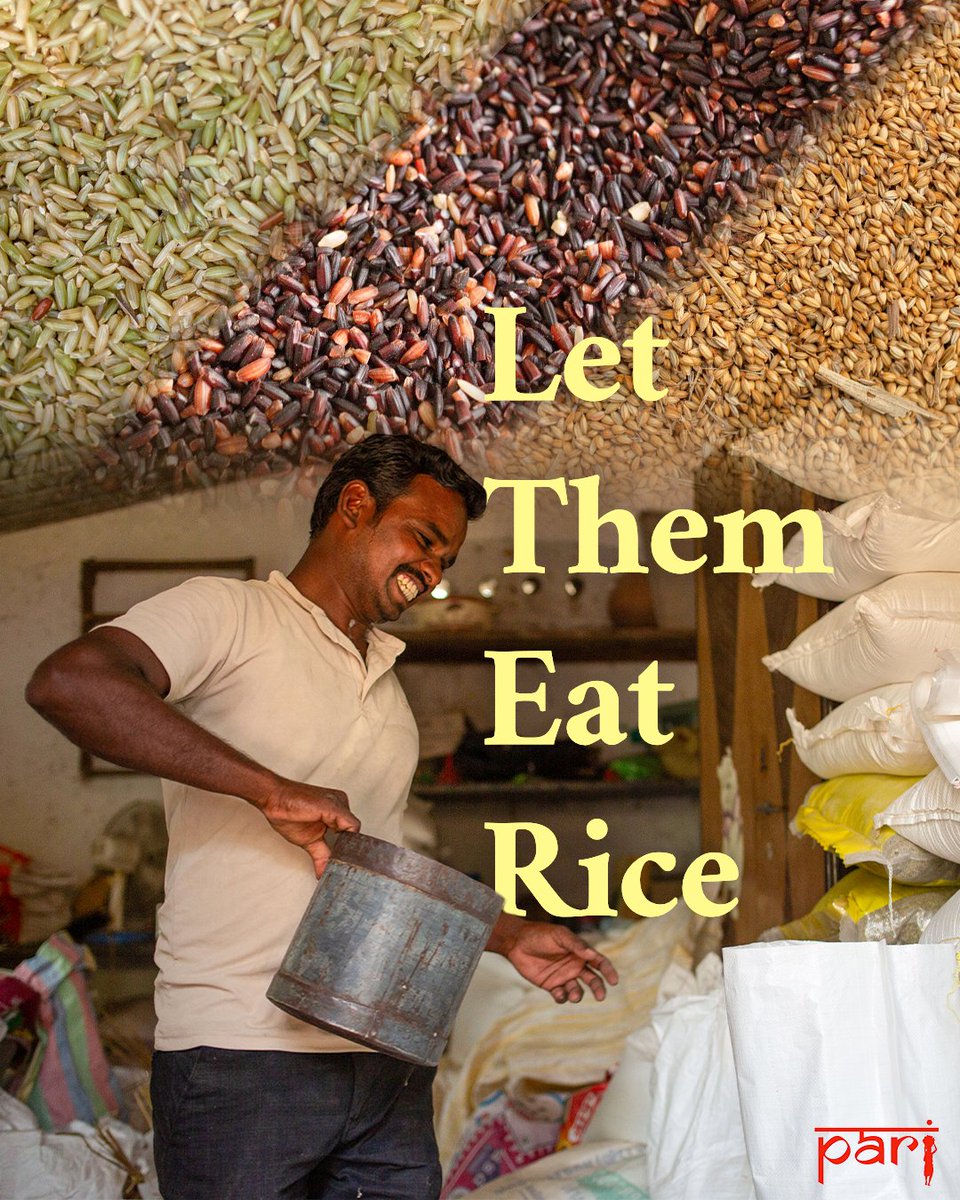With traditional symbiosis b/w farmers and pastoralists on the decline, Kuruba shepherds are migrating greater distances with their herds and belongings – on an ever-harder journey. Here's a peek into their lives in this long photo essay🧵
ruralindiaonline.org/en/articles/ku… 📷Prabir Mitra
ruralindiaonline.org/en/articles/ku… 📷Prabir Mitra

2| “Our job is to find landlords who will give us good money for the manure that my animals produce for the land,” says S. Bandeppa. During winter, the Kuruba shepherds are on the road while agricultural work is at a low. 

3| From then till around March-April, the pastoralist Kurubas of Karnataka, listed as a Scheduled Tribe, move about in groups of 2-3 families, covering, they estimate, a total distance of 600-800 kms. Walking on major roads is not easy, and the animals often get sick or injured 

4| 'Off road’ migration has its own difficulties due to the rugged terrain. And these pastoralists have to avoid any patches of agricultural land if they don’t have a grazing and manure agreement with that farmer. 

5| Some families hire vans to fit in their entire world as they migrate – their belongings, children, sheep, and goats are all packed in. Bigger animals like horses are taken on foot separately to the new destinations. Some families still journey on bullock carts. 

6| Over the past 2 decades, the demand for the wool of their sheep – animals bred in the rugged terrain of the Deccan region of south-central India – has been falling. The sturdy Deccani sheep can withstand the semi-arid climate of the land. 

7| Often, two or more families divide the responsibilities of looking after their herds. They live as an extended family, migrate together and return to their villages by spring. 

8| “Living on the landlords’ land with our animals is not easy [now],” says Neelappa Chachdi, erecting a boundary rope to restrain his herd on a farm off the Balihongal-Munavalli road in Belagavi. Eco-friendly way of procuring manure is declining, with farmers using fertilisers 

9| On a farm stop on the way, Gayathri Vimala, is cooking food for her toddler while keeping an eye on her animals as they feed. The rope enclosures contain the herds within their new ‘home’. The water source is important too when deciding where to stop on the migration route. 

10| When it's time to move on to the next stop, getting young animals to behave is a difficult task, not dissimilar to managing a toddler. 

11| Vijay, 5, and Nagaraju, 8, can readily recognise an animal even when it’s in a group. 'This is my best friend', smiles Nagaraju.
With a growing goat milk industry in the region, some of the Deccani sheep owners are focusing on rearing goats for milk.
With a growing goat milk industry in the region, some of the Deccani sheep owners are focusing on rearing goats for milk.

12| Young Vijay and Nagaraju accompanying their horse (the animals are used for carrying heavier loads), along with their father Neelappa Chachdi. 

13| Setting up home in a new settlement after days on the road is an important task. Children chip in too. Vijay is only five, but pitches in readily 

14| During the migration walks, great care is taken to safeguard the wounded or ill animals – here, a wounded goat had occupied the front passenger seat of a van. 

15| Kurubas revere their animals, especially the horse. For long, a major portion of the earnings of the shepherds came from supplying wool for the coarse black woollen blankets locally called kambali (and gongadi or gongali in Maharashtra and AP). It supplemented their income. 

16| In some villages, women have formed ‘self-help-groups’ to collectively try and generate better incomes from Deccani wool. In Dadibhavi Salapur, Shantavva Bewoor is spinning on a charkha, Savitri is processing the fleece, while Lammas Bewoor awaits her turn to spin 

17| The pit loom is traditionally used to produce Deccani blankets. P. Eeshwarappa and his son Beerendra at the loom, accompanied by Narayan, the youngest of the three generations. 

18| In Mekalmardi village, in an effort to enhance his income, Dastagir Jamdar has been combining jute, leather, and wool to improvise bags and other items. 

19| Dinesh Seth, shop manager, checks the quality of a blanket. The average price of such blankets in the shops ranges between Rs. 800 and Rs. 1,500, and smaller rugs cost Rs. 400 to Rs. 600. But the demand for Deccani woollens has been steadily falling 

20| To ensure their animals look healthy at the livestock market, some of the Kurubas now medicate them liberally. Pastoralists like Mailara Bandeppa have begun to medicate (deworming and antibiotics) their animals, often without proper veterinary advice 

21| Kaka Nagappa leading his flock to the market. With the state government promoting breeds such as Red Nellore, Yelgu, and Madgyal, that produce more meat than wool, the Kurubas are increasingly keeping these breeds too. A male lamb fetches the highest sum in the meat industry 

22| Animals being loaded into a truck, to be taken away to the Tuesday sheep-goat market in Sira town, Tumkur district. 

23| For long, the pastoralist Kurubas of Karnataka have journeyed for months to graze their hardy Deccani sheep. But with declining demand for their animals' manure and wool, many are seeking other sources of income. Full Story by Prabir Mitra [fin]
ruralindiaonline.org/en/articles/ku…
ruralindiaonline.org/en/articles/ku…
@threadreaderapp unroll please
• • •
Missing some Tweet in this thread? You can try to
force a refresh






















